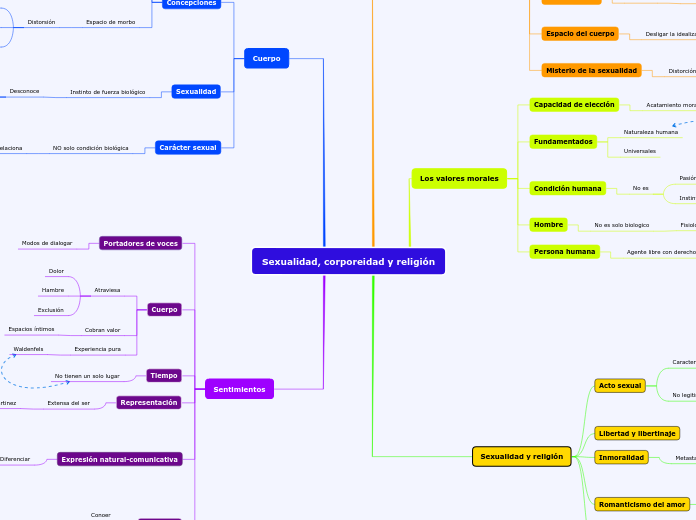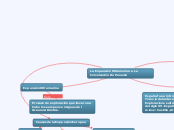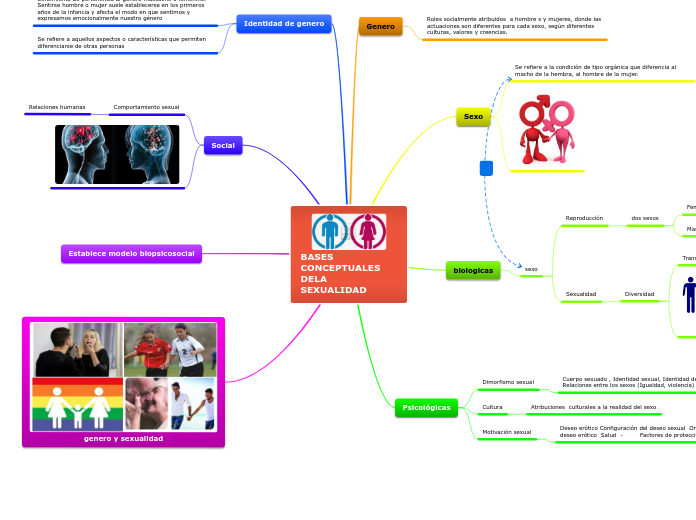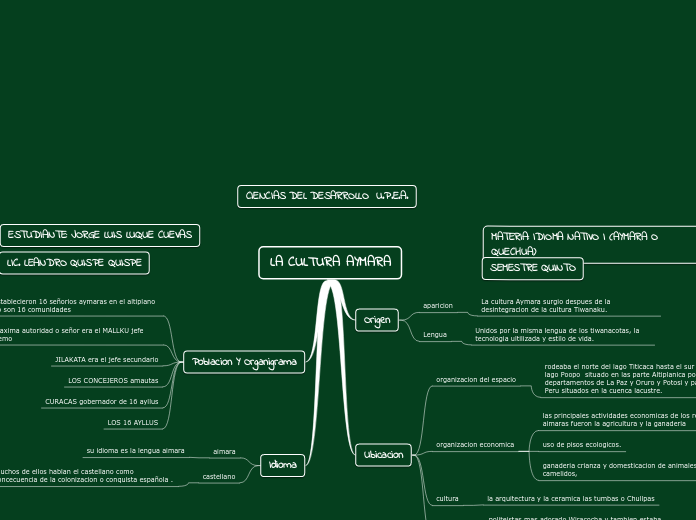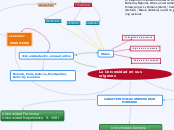Sexualidad, corporeidad y religión
In linguistics, syntax is the set of rules, principles, and processes that govern the structure of sentences in a given language, usually including word order.
Sentimientos
A compound sentence is a sentence that has at least two independent clauses joined by a comma, semicolon or conjunction. An independent clause is a clause that has a subject and verb and forms a complete thought.
Presencia
Reconocer al otro
Conoer
Expresión natural-comunicativa
Diferenciar
Situaciones limites
Malestar
Desagrado
Asombro
Representación
Extensa del ser
Martinez
Tiempo
No tienen un solo lugar
When independent clauses are joined with coordinators (also called coordinating conjunctions), commas and semicolons, they do more than just join the clauses. They add meaning and flow to your writing.
Experiencia pura
Waldenfels
Cobran valor
Espacios íntimos
Atraviesa
Exclusión
Hambre
Dolor
Portadores de voces
Create your own compound sentences, using the coordinators above.
Modos de dialogar
A complex sentence is a sentence that contains an independent clause and one or more dependent clauses.
An independent clause can stand alone as a sentence, but a dependent clause even though it has a subject and a verb cannot stand alone.
Carácter sexual
The subject clause is a dependent clause that acts as a subject.
NO solo condición biológica
Relaciona
Contexto
Formas culturales de uso
A predicative clause may be introduced by conjunctions - that, whether, whether... or, as, as if, as though, because, lest, the way - or connectives.
The latter may be conjunctive pronouns - who, whoever, what, whatever, which - or conjunctive adverbs - where, wherever, when, whenever, how, why.
Instinto de fuerza biológico
Desconoce
Espirituales
Sociales
Psíquicas
Concepciones
The object clause is a phrase on which a verb performs an action. It falls at the end of a sentence, and is governed by a verb or a preposition.
Espacio de morbo
Distorsión
Religión
Sexualidad
Elemento de relación
Lenguaje y encuentro
Londoño
Organismo
Johnson
Sexualidad y religión
Estimulos
Romanticismo del amor
Contrato matrimonial
Seculazación
Modernidad
Nuevos modelos de vida
Perdida de lo humano
Autonomia
Entre-nos con otros
Voluntad de otros
Sometido
Inmoralidad
Metastasis
Infeidelidad
Libertad y libertinaje
Acto sexual
No legitimado por el matrimonio
Institucionalización del matrimonio
Relación con Dios
Caracter impudico
Los valores morales
Persona humana
See the example below and try to create your own simple sentences.
Tim is the driver.
Agente libre con derechos
Fernandez
Hombre
See the example below and try to create your own simple sentences.
Tim is driving the red car.
No es solo biologico
Fisiologico tradicional
Condición humana
See the example below and try to create your own simple sentences.
Tim is driving the car with his mother.
No es
Instinto
Pasión
Fundamentados
See the example below and try to create your own simple sentences.
Tim drives the car.
Universales
Naturaleza humana
Capacidad de elección
See the example below and try to create your own simple sentences.
Tim drives.
Acatamiento moral
Dialogo más humano
Misterio de la sexualidad
Traditional grammar defines the object in a sentence as the entity that is acted upon by the subject.
Distorción
The direct object is the receiver of the action mentioned in the sentence.
Desconocimiento
Espacio del cuerpo
An adverbial is an individual word (that is, an adverb), a phrase, or a clause that can modify a verb, an adjective, or a complete sentence.
Desligar la idealización
Juicios doctrinales
Condena
Reproducción
Comportamientos sexuales
Comunicación
The attribute is defined as a quality or characteristic of a person, place or thing.
Lenguaje
Estar presente
Dimensión corporal
The predicative is defined as an adjective or noun forming or contained in the predicate.
Its main trait is that it serves to express a property that is assigned to a 'subject'.
For e.g.: The dog is old.
Cuerpo vivido
Cuerpo
The subject of a sentence is the person, place, thing, or idea that is doing or being something. You can find the subject of a sentence if you can find the verb.
Ask the question, 'Who or what 'verbs' or 'verbed'?' and the answer to that question is the subject.
Instalación primaria
Estructura biografíaca en la vida humana
Instala
Conocerse en su totalidad
The predicate of a sentence is the part that modifies the subject in some way. Because the subject is the person, place, or thing that a sentence is about, the predicate must contain a verb explaining what the subject does and can also include a modifier.
El hombre debe darse cuenta de su humanidad
